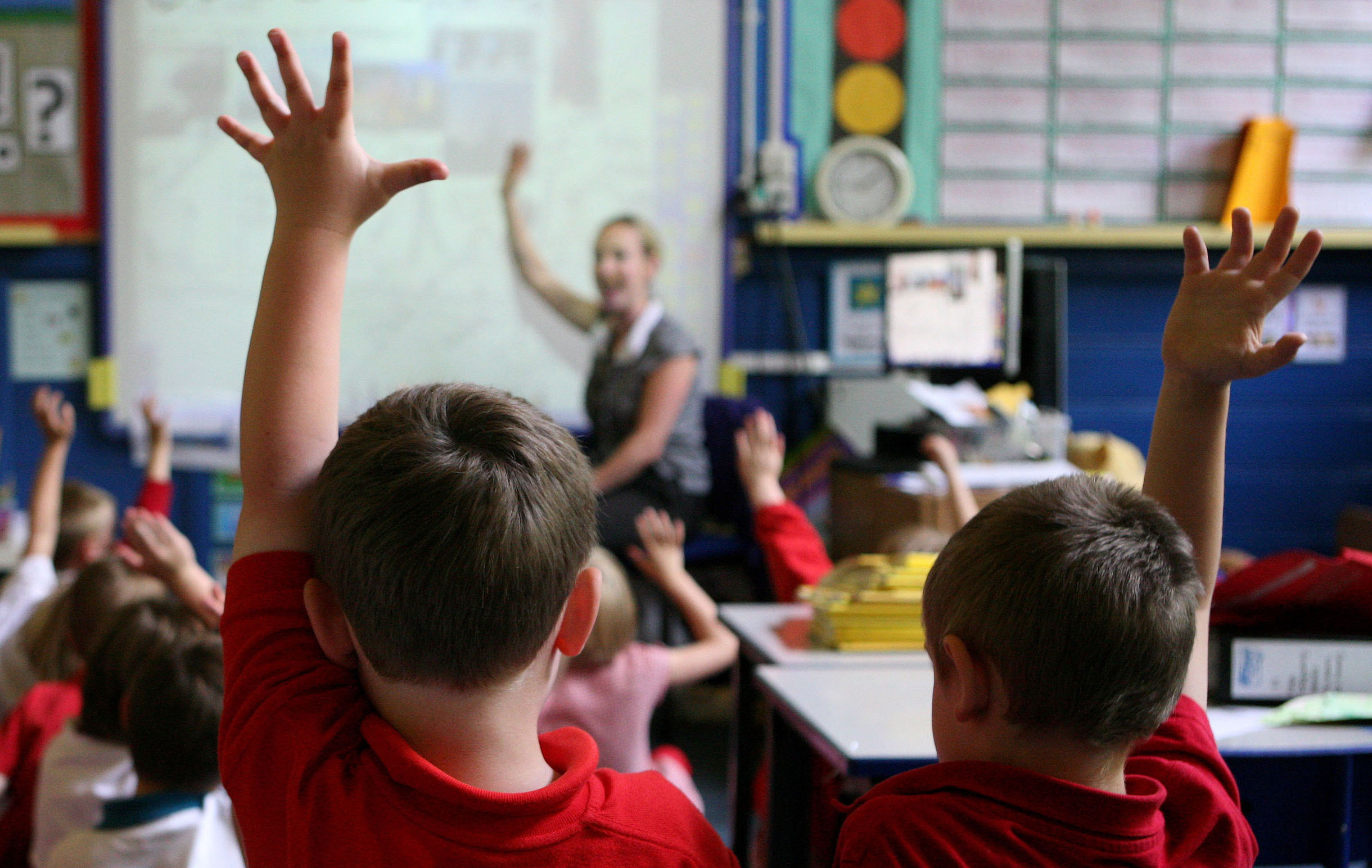
Scottish Government health experts do not yet know if the more infectious Covid variant is a greater risk to teachers and pupils.
An announcement on the reopening of schools is expected on Tuesday but officials have been unable to make an assessment of the risk of the faster-spreading mutation blamed for fuelling a spike in infections after Christmas.
Concern about the risks of a return to classrooms were discussed when Scottish Government advisors took part in a British Medical Journal webinar for health and education professionals on Thursday.
They presented findings from a Public Health Scotland report published late last year which showed teachers were at no more danger from the virus than other adults but when asked if the more transmissible variant posed a greater risk, the officials said they were unsure.
David McAllister, an honorary consultant in public health medicine at Public Health Scotland, said: “We have not properly looked at the new variant yet but that is absolutely on our to do list.”
First Minister Nicola Sturgeon has said she hopes to begin a phased return to in-school learning in mid-February while Prime Minister Boris Johnson has said schools in England will not fully reopen until March 8 at the earliest.
Teaching union the EIS said yesterday they do not expect schools in Scotland to fully reopen until March when a staggered return will be needed.
EIS leader Larry Flanagan took part in an online meeting with the UK Government’s Scientific Advisory Group for Emergencies (SAGE) last week.
Mr Flanagan said: “Physical distancing of two metres may be required among pupils in schools based on the variant transmitting more easily and not being reliant on symptomatic transmission. That would mean schools would reopen on a blended learning approach with reduced numbers in schools.
“I know that the Scottish cabinet is awaiting intel from SAGE before taking a decision on Tuesday.”
Mr Flanagan said parents should not expect schools in Scotland to open in February. He said: “The Scottish Government is clearly still in a very cautious mood so you would be surprised if they were less cautious than the UK Government.”
Meanwhile Rachael Wood, a consultant in public health medicine at Public Health Scotland who advises on government policy, told the BMJ webinar that schools are unlikely to fully reopen until community transmission of the virus is far lower. She said: “Essentially, the message is that the risk of Covid in teachers reflects the background risk in the communities and populations in which they live.
“So the higher our community rates of transmission of Covid, the more teachers and everyone else will become infected, the more opportunity to import infections into schools.
“We are all very keen to see schools open consistently with minimal absence and illness among staff and children. Maintaining low community transmission rates will be an important part of us achieving that.”
Public health professor Linda Bauld echoed that yesterday, saying a gradual return from early March is the “best case scenario”.
She said: “It’s clear one of the implications of the new variant is that people have a higher viral load and they’re carrying more virus in their upper airways. That means they are more likely to pass it on even if they are asymptomatic.”
The Scottish Government said: “We want to reopen schools in a safe manner as soon as possible.
“The Scottish Government Cabinet will review the position on February 2 and we will provide a further update next week, which will be based on the latest advice from the Chief Medical Officer and our other public health experts.”
Sixty more deaths in Scotland but infection rate dropping
Scotland recorded 60 more deaths from Covid-19 in the last 24 hours but there is hope the infection rate is coming down.
It brings the death toll of people in Scotland who first tested positive for the virus within the previous 28 days to 6,100. In an encouraging sign, the daily test positivity rate is 5.8% for the second day in a row, edging towards the 5% mark, at which the World Health Organisation considers a pandemic to be “under control”.
Anthony Harnden, deputy chairman of the Joint Committee on Vaccination and Immunisation, said it appears vaccinations are now having an effect in reducing the number of virus cases.
The first dose of a coronavirus vaccine has been given to 543,370 people in Scotland and 8.4 million people across the UK.
Mr Harnden said: “The preliminary data indicates a vaccine effect from the first dose in both younger adults and in older adults over 80. The effect seems to increase over time.”
Meanwhile, Scotland’s national clinical director Jason Leitch said crowds could return to football stadiums next season.
He said: “We will have to see what the vaccine does. If we get that right, there could be crowds in September.”

Enjoy the convenience of having The Sunday Post delivered as a digital ePaper straight to your smartphone, tablet or computer.
Subscribe for only £5.49 a month and enjoy all the benefits of the printed paper as a digital replica.
Subscribe